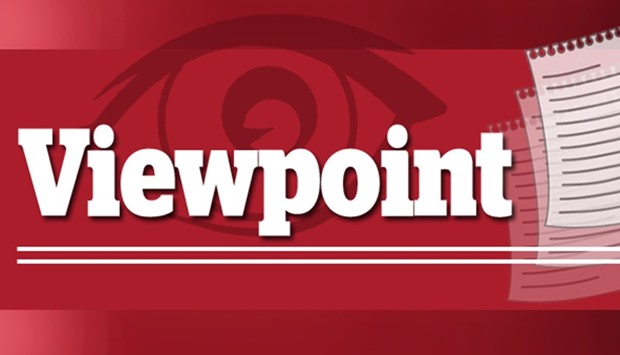The United States now finds itself, for only the fourth time in its history, confronting articles of impeachment that charge its highest elected leader with violating both the US Constitution and the oath of office to uphold it.
In the months leading up to this, it should first be said, the House has gone about its impeachment inquiry in an entirely appropriate way. Proper for a high-stakes investigation, initial witnesses testified privately. When Republicans insisted on public hearings, the hearings went public. And the thoughtful questioning, especially in the House Intelligence Committee, did much to lay a fact-based foundation for the abuse-of-power charge. That article states that President Donald Trump “ignored and injured the interests of the nation” by using the power of his office to attempt to pressure Ukraine into a politically beneficial investigation of his political rival.
Americans heard powerful and troubling testimony from witnesses who largely corroborated one another. They saw for themselves the readout of the now-infamous “Do us a favour, though” phone call from Trump to Ukrainian President Volodymyr Zelenskiy. On Monday came the release of the Republican-ordered inspector general’s report into the FBI investigation of Russian interference in the 2016 election.
That report found the investigation to be legitimate and free from political motivation, bias or spying on the Trump campaign. Republicans have been trying mightily to discredit the probe and, as Trump would prefer, shift the focus to Ukraine, though the entire US intelligence community has said that Russia was the primary actor. The report also noted some performance failures in the FBI’s procedures. That is appropriate for separate examination, but has little bearing on the impeachment process.
The second article is one, frankly, that Trump has brought upon himself, through his intractable rejection of Congress’ watchdog role. His refusal to allow key figures to testify, from Chief of Staff Mick Mulvaney down to former employees and campaign workers, is anathema to a political system built on checks and balances. House Intelligence Committee Chairman Adam Schiff rightly noted that should Trump’s ban be allowed to stand with no consequence, it “would decimate Congress’ ability to conduct oversight of this president or any other in the future.” Republicans should think twice before surrendering an accountability role that may be needed in the future, just as it was when they investigated President Bill Clinton’s transgressions.
Bringing articles of impeachment is a significant step, but not the last one. This now moves to committee votes, then the full House and, if passed, on to the Senate for a trial to determine whether Trump should become the first president removed from office by Congress. These are serious times for the country, and the Star Tribune Editorial Board is reserving judgment for now on whether impeachment or conviction are justified.
In the meantime, it was heartening to see on Tuesday that the House and White House have made a deal on the USMCA trade agreement negotiated by Trump. The nation’s work must go on, even in times such as these. The agreement will bring a measure of badly needed stability amid a trade war that has hurt many, including in Minnesota, where exports have been falling. – Tribune News Service

